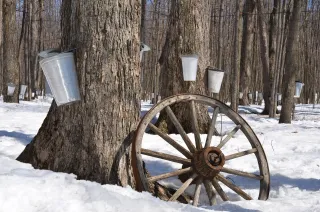Active banners: 1 Visible banners: 1
Banner ID: 4 Has content: true
Let's create continuous conversations about climate change education: Spreading the Sediment of Science!
Manure and Drinking Water
Provided by: Wisconsin Department of Natural Resources |Published on: July 13, 2023
Articles/Websites
9101112
Synopsis
- This article provides information about the risks and signs of livestock manure contamination in water wells and what residents should do if their water appears to be contaminated.
- Students will learn that weather events can cause manure to leak into water wells, that wells located near farm fields are most likely to be infected with manure, that foamy water is a clear sign of manure contamination, and that rural residents in Wisconsin should call the DNR Hotline if their water is contaminated.

Subjects: Biology, Earth and Space Sciences, Civics, Health
Authors: Wisconsin Department of Natural Resources
Region: North America, USA - Midwest, United States, Wisconsin
Languages: English
Teaching Materials
Positives
- This article provides information on federal and state programs that assist water well owners if their well has been contaminated.
- This article shows the health risks that come with drinking contaminated well water.
Additional Prerequisites
- Students should have a basic understanding of what a well casing is for wells.
- Students should know what E. coli bacteria is and why it can be dangerous for human health.
Differentiation
- This article could enhance a classroom discussion on what types of communities rely on water wells, how water distribution and quality differs from place to place, and why these differences occur.
- This article could augment a lesson on the correlation between access to clean drinking water and personal health.
- After reading the article, the teacher could lead a classroom discussion on the Wisconsin government's effectiveness at informing citizens about water well contamination and providing aid to those with contaminated water.
- This article could support a lesson on how climate change increases the severity and frequency of flooding, and this flooding has a number consequences for plants and animals (including humans).
Scientist Notes
Teaching Tips
Standards
Resource Type and Format
All resources can be used for your educational purposes with proper attribution to the content provider.
Teaching Materials
Educator Support
My Account







